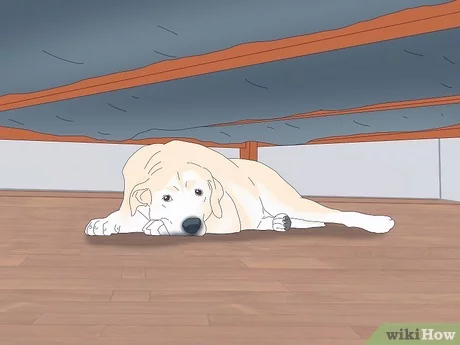How Long Can A Dog Go Without Pooping
Dogs are beloved pets that bring joy and happiness to their owners’ lives. They are loyal companions and provide unconditional love, but they also require proper care and attention to maintain their health and wellbeing. One of the most critical aspects of a dog’s health is its digestive system, which includes its ability to eliminate waste through defecation. Many dog owners wonder how long their furry friends can go without pooping, so let’s explore this topic in detail.
Firstly, it’s essential to understand that every dog is unique and has its own bowel movement schedule. Factors such as age, breed, diet, exercise routine, and medical conditions can all affect a dog’s poop frequency. Generally speaking, healthy dogs should defecate at least once or twice a day, while puppies may need to go more frequently.
However, there are instances when a dog may go longer than usual without pooping. For example, if your dog has recently eaten something unusual or consumed too many treats or bones, it may take longer for them to digest their food properly. Additionally, if your dog is feeling stressed or anxious, they may hold off on pooping until they feel more comfortable.
So how long can a dog go without pooping? In general, most dogs can go up to three days without pooping, although this should not be considered normal behavior. If your dog hasn’t pooped for more than two days and shows signs of discomfort or pain (such as whining or panting), you should take them to the vet immediately.
It’s crucial to pay attention to your dog’s bathroom habits regularly. This includes monitoring the frequency of their bowel movements and inspecting their stool for any abnormalities such as blood or mucus. If you notice any changes in your dog’s poop consistency or color or a sudden decrease in their bathroom frequency, it could be an indication of an underlying health issue that requires vet attention.
When it comes to promoting healthy bowel movements in dogs, diet and exercise play a crucial role. Feeding your dog a balanced, nutritious diet with plenty of fiber can help regulate their digestive system and promote regular pooping habits. Additionally, providing your dog with ample opportunities for exercise and physical activity can help stimulate their bowels and encourage more frequent defecation.
In conclusion, while it’s normal for dogs to have individual bathroom schedules, going too long without pooping can be a sign of an underlying health issue. As a responsible pet owner, it’s essential to monitor your dog’s bathroom habits regularly and seek veterinary attention if you notice any concerning changes. By providing your furry friend with proper nutrition and exercise, you can help promote optimal digestive health and ensure they maintain healthy pooping habits. Remember, a happy dog is one that poops regularly!



